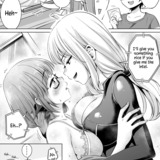To be specific The idea that Tara should grief and accept Maddie's death is directly opposed to the theme of the story of not giving up and is directly contradicted by, well, Maddie obviously coming back. Tara's entire character revolves around the fact that she believes everything is possible and that she doesn't just give up even if it seems futile. That is one of the things that attracted Morgan to her in the first place. Letting your emotions go free is a good thing, but the fact that it is inherently tied to giving up on Maddie is not sensible to me.
That scene isn't about Tara giving up. Like, it literally ends with Morgan saying that she'll get Maddie back and Tara responding "I know. If anyone can, it's you."
Also, that choice is not about "what should Tara do", it's "what should Morgan do." Each choice is made by Morgan and is a part of her growth as a character. Her allowing Tara to let out her feelings is important for her character growth more than anything else. Same with the two other choices.
This is simply a matter of proper integration I believe. Choices dont really interrupt the plot much at all, they only take a few moments to make at most. You are basically saying that you prefer kinetic VNs or ones that want to tell a straightforward plot as I mentioned before. You don't care too much about player input, you just want a focused narrative. That is fine of course and there are many great examples of this style.
I mean, that's precisely what I'm saying. Badly implemented choices interrupt the story while well implemented ones flow with it. And the more choices you have the more likely it is that at least some are redundant and unneeded. Most VNs I've read have had way too many choices in comparison to the amount of plot beats.
And while I do prefer more kinetic stories I do also like the reader input, but redundant choices slow the story down. And that "few moments" is relative as well. Personally I have to: figure out what the choice is asking, figure out who or what the choices are referring to, in most cases I also save before making the choice, and write down which choice I go with so that I can figure out the other endings on later read throughs (also, if I save I need to write out which save file this path goes in also).
Usually a choice takes me at least 30 seconds to make which works really well in some cases but halts the whole story in others. Mostly the latter thing.
A choice system that gives you both choices with little consequences and big consequences mixed into the narrative can keep the player on their toes. It also can give you some variety in smaller scenes, which is good for replay value. For VNs with route systems many small choices can determine your route, which many people find appealing. It feels like the romance option really suits your personality, because you didn't just pick her, she actually resonates with your input.
This can still be implemented in the way I described as fun. For example, instead of scattering choices that influence dialogue in a single scene (e.g. "A looks better" vs "B looks better") you would have choices that influence the next scene (e.g. "I want to go with A" vs "I want to go with B", where the next scene is decided by which you choose).
This still has the romance option resonating with your input without having said input amount to very little in the actual story.
These small choices, to me at least, feel like they're just "need to get enough points to trigger a flag" instead of "I really like this person so I want compliment her", because the small choices don't really reward the reader with anything other than the knowledge that "this raises their points"
last edited at Feb 12, 2022 6:48PM



.jpg?1714757091)

.jpg?1714757046)